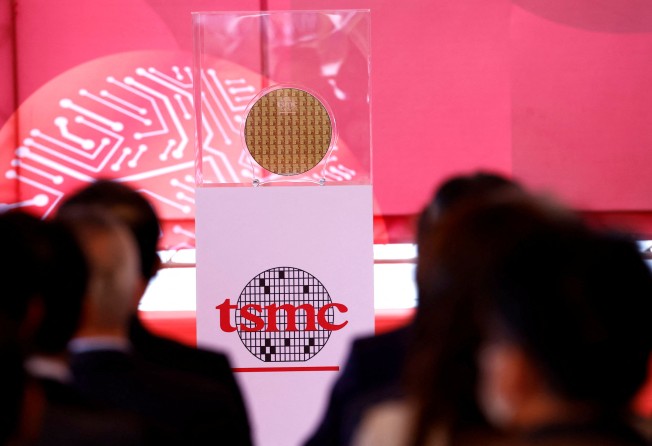06:01
There’s a global semiconductor shortage and this is why it matters

As US President Joe Biden plunges into 2023 by doubling down on US efforts to technologically contain China, fresh questions are being raised not only over whether such a strategy can succeed but whether it might inflict equal and catastrophic harm on the US economy, its leading companies, the economies of its friends and the hapless pawn in this saga that is Taiwan.
As Gideon Rachman – normally a loyal incubator of security paranoias about China – asked in the Financial Times earlier this week in a moment of unusual introspection, do we truly want China to fail? The goal, he said, “should not be to prevent China from becoming richer. It is to prevent China’s growing wealth from being used to threaten its neighbours or intimidate its trading partners.”
Hail to that, except that I can count not a small number of countries – including some close US allies – who wish the United States would also use less of its wealth threatening its neighbours or intimidating its trading partners.
The premise underpinning the US tech war is that China is bent on building competitive advantage through its “Made in China 2025” strategy – by fair means or foul – in the newest and most value-adding technologies. In particular, there is a focus on the spectrum of semiconductor industries that have become indispensable not just to almost everything we consume but to US military security and technology leadership.
Worse, and central to the US security community’s focus, is the idea that China is using this strategy to undermine the democracies of the West and pursue aggressive and expansionist military objectives in the western Pacific and further afield.
Security officials are, of course, employed to be paranoid. The diffusion of increasingly powerful microprocessors into everything from smartphones, dishwashers and traffic coordination systems to drones, satellites and rockets has made it next to impossible for them to differentiate simple consumer goods from the dual-use devices that have the potential to undermine US security.
Today, as China tries to make its way into a higher-value-adding niche in the global semiconductor supply chain, the colossal semiconductor industry is the servant of every manufacturer on the planet, with military clients accounting for a small portion of global demand. Every car contains thousands of them.
Most companies worldwide appear not to think of semiconductors as components at the heart of military supremacy and national security. In the US, though, that thought seems hard-wired.
At the same time, this indispensable industry has become so complex and expensive that it is beyond the scope of even Pentagon budgets to shape or control, as Chris Miller explains in his recently published Chip War. The danger is less that China might somehow subvert the global semiconductor supply chain to the disadvantage of the US – though this is still possible – but that the US and its technology leaders have sleepwalked into the creation of an industry of such delicate complexity that it is staggeringly vulnerable and a source of insecurity in its own right.
When Gordon Moore suggested in 1965 the potential to leverage transistors to transform and miniaturise almost everything we make, he was able to place four transistors on a single microchip. Today, an iPhone A14 processor chip carries a bewildering 11.8 billion transistors.

In place of nimble fingers welding wires to connect circuitry, we have extreme ultraviolet lithography machines that take decades to plan and build, cost more than US$100 million a piece and can place circuits a bare couple of nanometres apart.
They are produced by one company worldwide, the Dutch company ASML, and only a tiny number of companies can afford them or have the personnel trained to operate them. About half of these machines are installed in a single economy and operated by a single firm – Taiwan Semiconductor Manufacturing Company (TSMC).
The vulnerability of the industry is not of globalisation, according to Miller, but of “Taiwanisation”. A small oligopoly of companies is producing irreplaceable machinery and placing them in a single extraordinarily vulnerable economy; Taiwan now accounts for 37 per cent of the world’s logic chips and 11 per cent of memory chips. No wonder the US security establishment has such acute heartburn over Chinese threats to take control over the island.
Given China’s desperate urge to capture a higher-value-adding position in the semiconductor supply chain and compromise US control of the sector, there might surely be no simpler solution than to invade Taiwan and wrest control of TSMC. This raises the question why Beijing has resisted the temptation to do so for so many years.
The simplest answer, as discussed by Jude Blanchette and Ryan Hass in a recent article, is that “For more than 70 years, Beijing has concluded that the cost of invasion remains too high … A direct confrontation between the US and China would wreak devastation for generations.”
Their recommendation is to avoid pushing China into a corner at all costs. If Biden is concerned not just for Taiwan’s security but its resilience and long-term prosperity, then the effort to contain China is foolhardy and likely to backfire to the detriment of all.
As Stephen Wertheim wrote in the Financial Times this week: “If it keeps trying to defend everything, America will end up defending nothing.” That includes the indispensable global semiconductor industry.
David Dodwell is CEO of the trade policy and international relations consultancy Strategic Access, focused on developments and challenges facing the Asia-Pacific over the past four decades